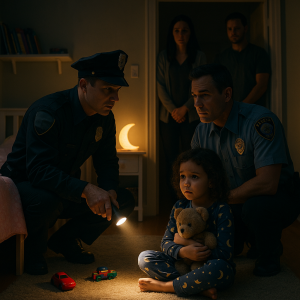Four decades later, the actor demonstrates why his Grease choreography remains cinema’s most beloved dance sequence
When John Travolta stepped onto Jimmy Fallon’s Tonight Show stage recently, something extraordinary happened. The 70-year-old actor transported viewers back to 1978 with a single dance move, proving that genuine star power transcends the passage of time.
The occasion marked a special milestone—40 years since Grease premiered and captured hearts worldwide. What began as a simple promotional appearance evolved into something far more meaningful: a masterclass in enduring charisma from Hollywood’s most versatile entertainer.
The Genesis of an Iconic Moment
During his conversation with Fallon, Travolta revealed fascinating behind-the-scenes details about one of cinema’s most recognizable dance sequences. The choreography that millions associate with “You’re the One That I Want” actually originated from Travolta’s own childhood experiences.
“Growing up, I was surrounded by these novelty dances,” Travolta explained to the late-night host. When the film’s creative team needed distinctive movement for the climactic musical number, the young actor drew from his personal repertoire.
The solution came from an unexpected source: a dance called “the four corners” that Travolta remembered from his youth. He approached the film’s choreographer with his suggestion, demonstrating the steps that would eventually become legendary.
A Performance That Transcends Decades
What followed on Fallon’s show was nothing short of magical. As the familiar Grease soundtrack filled the studio, Travolta seamlessly slipped back into character. His movements retained the same fluid confidence that made Danny Zuko an instant icon.
The studio audience’s enthusiastic response reflected a broader cultural phenomenon. Grease didn’t simply entertain—it created a shared emotional experience that continues resonating across generations. The film’s portrayal of teenage romance, set against the backdrop of 1950s Americana, struck a universal chord that time hasn’t diminished.
Cultural Impact Beyond the Silver Screen
Grease’s influence extended far beyond its initial theatrical run. The story of Danny Zuko and Sandy Olsson became cultural shorthand for young love, complete with its complications and ultimate triumph. Their summer romance, interrupted by circumstance and nearly derailed by social pressures, offered viewers both nostalgia and hope.
The film’s success stemmed partly from its authentic emotional core. Despite the stylized musical numbers and period setting, the characters’ struggles felt genuinely relatable. Danny’s internal conflict between maintaining his tough image and expressing genuine affection resonated with audiences who recognized similar dilemmas in their own lives.
The Enduring Appeal of Musical Storytelling
Travolta’s recent television appearance highlighted something significant about musical entertainment. When executed with genuine skill and emotional authenticity, song and dance create connections that purely dramatic performances sometimes cannot achieve.
The actor’s continued ability to embody Danny Zuko speaks to both his natural talent and the character’s timeless appeal. Four decades haven’t dulled the charm that made Travolta a household name, nor have they diminished the cultural significance of his most famous role.
A Legacy Still in Motion
As Travolta demonstrated those familiar dance steps on national television, he reminded viewers why certain performances become permanently etched in collective memory. Great entertainment transcends its original context, continuing to inspire and delight long after its creators might have expected.
The enthusiastic response to his Tonight Show appearance suggests that audiences remain hungry for the kind of joy and optimism that Grease embodied. In an era often characterized by cynicism and division, the film’s celebration of young love and second chances offers welcome relief.
Travolta’s enduring connection to his breakthrough role demonstrates something profound about artistic legacy. When performers fully commit to their characters and stories, they create something that belongs not just to them, but to everyone who experiences it. Danny Zuko may have been born in 1978, but his spirit clearly knows no expiration date.





